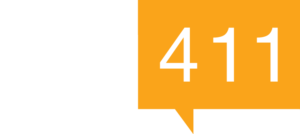HR professionals are at the forefront of effective performance management, balancing the fine line between fostering productivity and maintaining employee satisfaction. Let’s explore some eye-opening insights from recent studies and expert opinions and see how they can revolutionize your approach to performance management.
Hybrid Working: The Secret Sauce for Retention
Picture a six-month randomized control trial at a leading Chinese tech company that found hybrid working—splitting time between home and office—boosted job satisfaction and slashed quit rates by a whopping one-third. And guess what? Performance grades and promotion rates didn’t budge. That challenges the old-school belief that productivity plummets outside the office. HR pros, it’s time to embrace the hybrid model. Not only can hybrid working enhance retention, but it also keeps your workforce happy and engaged without sacrificing productivity.
Surveillance Software: The Double-Edged Sword
Surveillance software, or “bossware,” is often seen as a quick fix to monitor remote workers. But here’s the catch—it can either build bridges or burn them down. Imagine having Big Brother watching your every move; it’s no wonder employees feel uneasy. However, there’s a way to make surveillance work effectively: clear communication and transparency.
The key is to use surveillance tools ethically and transparently. Let your team know that the purpose is to support them, not to punish them. Trust your team to get the job done while maintaining an open line of communication. A modern approach to employee monitoring not only keeps productivity high but also maintains the essential trust and morale within your team.
AI in Performance Management: Friend or Foe?
AI can either be your best friend or your worst enemy in performance management. When used as a surveillance tool, AI can lead to more complaints, lower productivity, and higher quit rates. But frame AI as a developmental tool, and voilà—employees are more receptive. They prefer AI that offers constructive feedback rather than harsh evaluations. The message is clear for HR professionals: use AI to support growth, not to play the role of a digital overlord. Provide context, foster autonomy, and watch your team thrive.
Strategies for Effective Performance Management
- Set Clear Expectations: Clearly define job roles, responsibilities, and performance expectations from the outset to avoid confusion and ensure everyone is on the same page.
- Regular Check-ins: Schedule consistent one-on-one meetings between managers and employees to discuss progress, address concerns, and provide feedback.
- Goal Setting: Implement SMART (Specific, Measurable, Achievable, Relevant, Time-bound) goals to provide employees with clear targets and milestones.
- Provide Development Opportunities: Invest in training and development programs to help employees enhance their skills and advance their careers.
- Recognize and Reward: Establish a recognition program to celebrate employee achievements and contributions, fostering a positive and motivating work environment.
- Foster Open Communication: Encourage an open-door policy where employees feel comfortable sharing ideas, feedback, and concerns without fear of reprisal.
- Utilize Performance Metrics: Use data-driven performance metrics to objectively evaluate employee performance and identify areas for improvement.
- Promote Work-Life Balance: Support flexible working arrangements and encourage employees to maintain a healthy work-life balance to prevent burnout and enhance overall productivity.
Rethink Your HR Strategies
It’s time to rethink traditional HR strategies. Hybrid working isn’t a productivity killer—it’s a retention booster. And AI? It’s all about how you use AI. By embracing flexibility, building trust, and focusing on development, HR professionals can create a powerhouse of productivity and satisfaction. Ready to shake things up? The future of performance management is here, and it’s more exciting than ever.






